Bird of Paradise (1932 Pre-Code Romantic Adv. Drama film)
Bird of Paradise is a 1932 American Pre-Code romantic adventure drama film directed by King Vidor and starring Dolores del Río and Joel McCrea. Based on the 1912 play of the same name by Richard Walton Tully, it was released by RKO Radio Pictures.
In 1960, the film entered the public domain in the United States because the claimants did not renew its copyright registration in the 28th year after publication per the Copyright Act of 1909.
Plot
As a yacht sails into an isolated tropical island chain somewhere in the Pacific Ocean, a large number of islanders in outrigger canoes paddle out to greet it. The islanders dive for trinkets the yacht's crew throws them. A shark arrives, setting off a panic as much with the crew as the islanders. Johnny Baker (Joel McCrea) attempts to catch it hand casting with a large hook but is yanked overboard when a loop of line attached to the impaled shark cinches around his ankle. Comely native swimmer Luana (Dolores del Río) cuts through the rope with a knife she had earlier been thrown as a trinket, saving his life.
Cast (in credits order)
Dolores del Río as Luana
Joel McCrea as Johnny Baker
John Halliday as Mac
Richard "Skeets" Gallagher as Chester
Bert Roach as Hector
Lon Chaney Jr. (billed as Creighton Chaney) as Thornton
Wade Boteler as Skipper Johnson
Reginald Simpson as O'Fallon
Production
Director King Vidor, under contract to M-G-M, was loaned to RKO producer David Selznick (son-in-law to Louis B. Mayer) to make the “South Seas” romance. Filmed on location in Hawaii, Vidor and writer Wells Root arrived on the island territory and began shooting background footage without a completed script (Actors McCrea and del Rio were delayed due to engagements on other projects.
The native dance sequences were boom-shot in Hollywood and choreographed by an uncredited Busby Berkeley.
Bird of Paradise was almost the first sound film to utilize a full symphonic score from beginning to end. Producer David O. Selznick and composer Max Steiner had both been experimenting with this idea, while other studios had begun development along similar lines, such the score by Alfred Newman for Samuel Goldwyn's Street Scene. However, it was Steiner who first received screen credit for composition of a score which, other than a few brief pauses during the film, was almost entirely through composed (from beginning to end).
Reception
Bird of Paradise created a scandal after its release owing to a scene which appeared to show Dolores del Río swimming naked. She was, in fact, wearing a flesh-colored G-string. The film was made before the Production Code was strictly enforced, so brief nudity in American movies was not unknown. Film director Orson Welles said del Río represented the highest erotic ideal with her performance in the film.
Box Office
The film lost an estimated $250,000 at the box office.
The film is recognized by American Film Institute in these lists:
2002: AFI's 100 Years...100 Passions – Nominated
Theme
Bird of Paradise ad from The Film Daily, 1932
In the early 1930s, Hollywood produced a number of pictures that exploited popular interest in “exotic” tropical locations, though these regions were fully penetrated by Western culture by the early 20th Century, including Hawaii. Films of this genre ranged from elevated ethnological studies such as F.W. Murnau’s and Robert Flaherty's Tabu: A Story of the South Seas (1931) to the Tarzan adventure series and King Kong in 1932 and 1933.
-
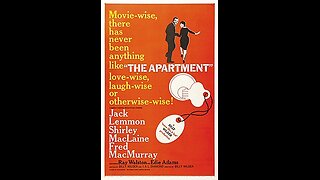 1:44:00
1:44:00
Vintage Movies.
3 months agoThe Apartment 1960, Romantic Comedy, full movie
2681 -
 1:32:49
1:32:49
TeslaWirelessRadio
3 months agoMade for Each Other (1939 American Romantic Comedy film)
56 -
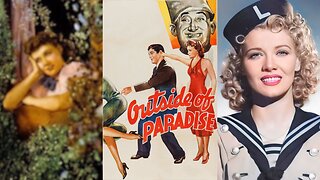 1:06:10
1:06:10
Lost n Found Films
3 months agoOUTSIDE OF PARADISE (1938) Phil Regan, Penny Singleton, Bert Gordon | Comedy, Musical, Romance | B&W
119 -
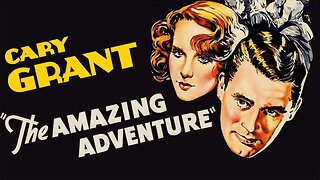 1:01:52
1:01:52
Lost n Found Films
4 months agoTHE AMAZING ADVENTURE (1936) Cary Grant, Mary Brian & Peter Gawthorne | Drama, Romance, Comedy | B&W
76 -
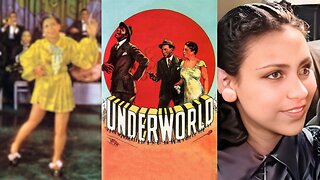 1:18:53
1:18:53
Lost n Found Films
4 months agoUNDERWORLD (1927) George Bancroft, Clive Brook & Evelyn Brent | Crime, Drama, Film-Noir | B&W
84 -
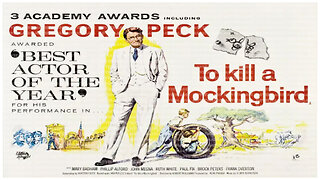 3:09
3:09
🎥 MovieMagic - Classic Old Movies | Film Noir | War | Westerns | Scifi | Musicals | Drama
3 months ago🎥 To Kill A Mocking Bird - 1962 - Gregory Peck - 🎥 TRAILER & FULL MOVIE LINK
1.07K4 -
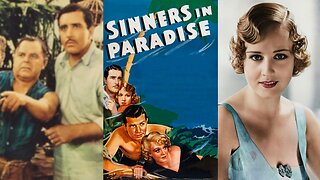 1:02:18
1:02:18
Lost n Found Films
3 months agoSINNERS IN PARADISE (1938) Madge Evens & Bruce Cabot | Adventure, Drama, Romance | COLORIZED
218 -
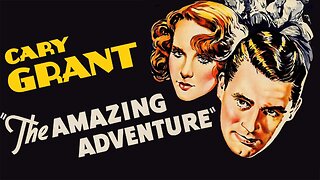 1:01:54
1:01:54
Lost n Found Films
4 months agoTHE AMAZING ADVENTURE (1936) Cary Grant & Mary Brian | Drama, Romance, Comedy | COLORIZED
96 -
 1:06:41
1:06:41
AFLIX
3 months agoDetour - FREE MOVIE - Remastered HD - SPECIAL EDITION - Film Noir - Starring Tom Neal and Ann Savage
84 -
 3:45:06
3:45:06
James Bond Series RANKED
2 months ago $0.01 earnedSkyfall | James Bond 007 Movies #RANKED Ep. 23
203